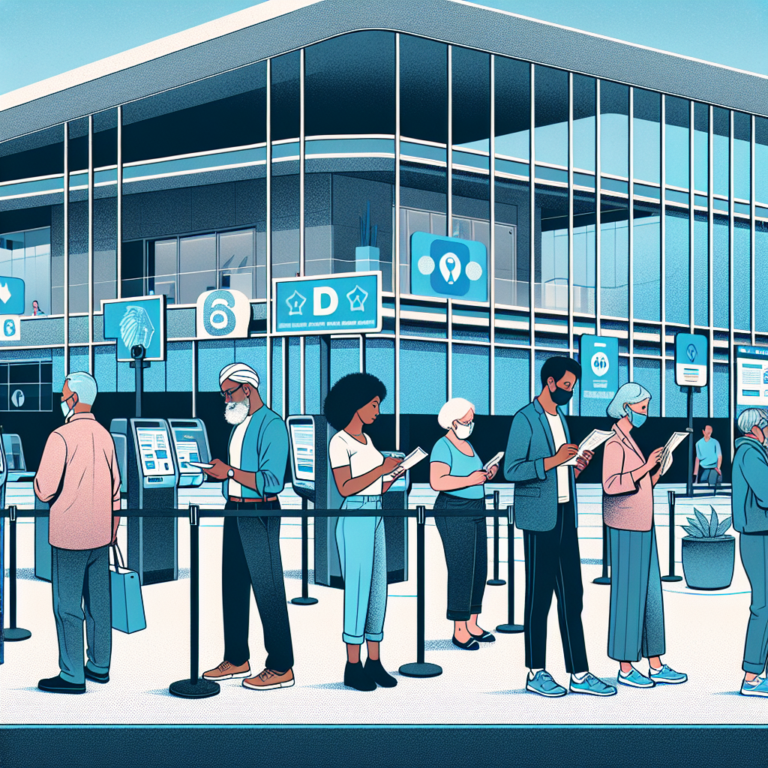In recent years, the Department of Motor Vehicles (DMV) has undergone a significant transformation, driven by advancements in technology, changing consumer expectations, and the need for enhanced efficiency. These updates are part of a broader initiative to modernize how the DMV interacts with the public, ensuring a more streamlined, user-friendly experience. As we navigate this new landscape, it is essential to explore the major updates to procedures and policies that are reshaping the DMV’s services.
Embracing Technology
One of the most notable changes at the DMV is the increased use of technology to simplify processes. The introduction of online services has been a game changer. Now, most states allow residents to apply for or renew licenses, register vehicles, and even schedule appointments through user-friendly online portals. This shift not only reduces wait times at physical locations but also provides customers with the flexibility to manage their DMV needs from the comfort of their homes.
Moreover, many DMVs are embracing mobile applications, which facilitate real-time access to services, notifications, and updates. For instance, users can receive reminders about upcoming renewals and track their application status, ensuring they never miss important deadlines.
Streamlined Processes
In addition to embracing technology, DMVs nationwide have been re-evaluating and streamlining their internal processes. This has included reducing the complexity of forms and making documentation requirements clearer and more accessible to the public. Many states have implemented a “one-stop-shop” approach, where individuals can handle multiple transactions in a single visit or online session.
Processes like obtaining a driver’s license now often include express lanes for individuals with all the required documentation in hand, as well as dedicated kiosks for quick renewals and updates. These efforts are aimed at significantly reducing lengthy wait times, often a major pain point for DMV customers.
Increased Focus on Customer Service
The DMV has also made a concerted effort to improve customer service. Staff training programs have been revamped to emphasize communication skills, empathy, and problem-solving. The goal is to create an environment where customers feel respected and assisted, not just processed.
Feedback systems have been integrated into the customer experience, allowing individuals to provide immediate responses concerning their visit. This feedback loop has facilitated adjustments in service delivery and has empowered DMVs to address common concerns more proactively.
Enhanced Accessibility
Recognizing the diverse needs of the population, DMVs have been focusing on making their services more accessible. This includes improvements for individuals with disabilities, as well as offering resources in multiple languages to cater to diverse communities. Additionally, extended hours of operation at select locations have been implemented to accommodate various work schedules, ensuring that everyone has the opportunity to access necessary services.
Environmental Responsibility
In line with modern sustainability efforts, many DMV organizations are adopting environmentally friendly practices. This includes the promotion of digital documentation and e-statements to reduce paper usage, as well as utilizing energy-efficient technologies in their facilities. By minimizing their carbon footprint, DMVs are contributing to a larger initiative toward environmental stewardship.
Keeping Security in Mind
With the increase in online services, the DMV is also prioritizing data security. Enhanced cybersecurity measures and protocols are being implemented to protect personal information and prevent identity theft. This is particularly important in an age where digital interactions are the norm, and individuals are wary of how their data is being used and stored.
Conclusion
The DMV is undergoing a profound evolution, focusing on technology, enhanced customer experiences, and increased accessibility, all while maintaining a commitment to security and environmental sustainability. As these changes take root, the DMV is starting to shed its reputation as a bureaucratic nightmare and is making strides toward becoming a modern and efficient service provider. As citizens become more familiar with the new procedures and policies, the hope is that the DMV will continue to improve, ultimately leading to increased satisfaction and engagement from the public it serves.


